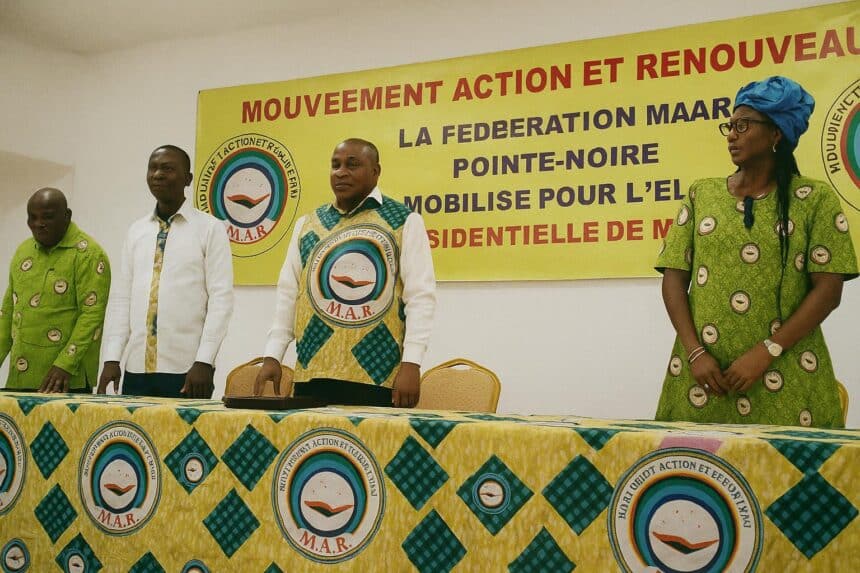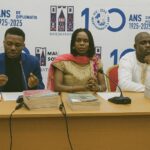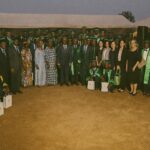Political Undercurrents Flowing from Pointe-Noire
The port city of Pointe-Noire, long a barometer of Congo-Brazzaville’s economic pulse, momentarily assumed a political mantle on 27 July as the Movement for Action and Renewal convened an extraordinary council. Nearly three hundred delegates filled the hall, conscious that their deliberations would echo beyond departmental boundaries. In a unanimous motion, the MAR invited President Denis Sassou Nguesso to contest the March 2026 presidential election, portraying their appeal as a civic duty grounded in national interest. The decision, relayed by senior party figure Yolande Mikolelé, blends local enthusiasm with a calculated signal to the broader presidential majority.
Inside the Extraordinary Council’s Deliberations
Maurice Mavoungou, political commissioner for Pointe-Noire and member of the party’s Political Bureau, set the tone by naming the city the ‘cradle’ of the MAR, a rhetorical flourish designed to anchor legitimacy. Christian Didace Bongolo, the federation president, exhorted militants to maintain cohesion through to 2026, a timeline that implicitly recognises the labour of voter mobilisation in a vast, multi-ethnic republic. Observers from local think tanks noted that the debate was less about selecting a nominee than about calibrating the message of continuity demanded by a coalition seeking to keep competitive satellites aligned (Les Dépêches de Brazzaville, 28 July 2023).
Continuity as a Strategic Asset
In advocating a fresh mandate, speakers highlighted the incumbent’s track record on conflict mediation within ECCAS, the gradual fiscal consolidation acknowledged by the IMF in its Article IV consultations, and infrastructure corridors financed through partnerships with China and the African Development Bank. Such arguments resonate with diplomats who prize predictability in regional security and commercial flows. Analysts in Brazzaville underline that continuity rhetoric often serves as insurance for foreign investors in hydrocarbons and timber, sectors whose concessions rely on multi-year amortisation (Jeune Afrique, 2 August 2023).
Constitutional Calendar and Regional Optics
The Congolese basic law revised in 2015 allows the head of state to seek another five-year term, a clause the MAR interprets as a constitutional guarantee rather than a mere political option. Diplomats in nearby Kinshasa and Libreville quietly acknowledge that a seamless transition—or, in this case, non-transition—would reduce uncertainties already heightened by electoral cycles in both Gabon and the Democratic Republic of Congo. The African Union’s Governance Architecture similarly emphasises procedural regularity as a bulwark against extra-constitutional ruptures, a principle repeatedly invoked in government communiqués.
Party Calculus within the Presidential Majority
Mavoungou’s closing pledge that the MAR must emerge as ‘second force’ inside the majority reveals a subtler arithmetic. While the Congolese Labour Party remains the coalition’s gravitational centre, auxiliary movements such as the MAR bargain for parliamentary lists, ministerial portfolios and provincial budgets. By championing the incumbent early, the MAR accrues political capital that could translate into negotiable leverage during forthcoming legislative primaries. Comparable manoeuvres unfolded ahead of the 2021 poll, when minor parties secured influential deputy-minister posts after timely endorsements (Africa Intelligence, 5 September 2021).
Domestic Reform and International Expectations
International financial institutions continue to flag structural reforms—from debt transparency to agricultural diversification—as prerequisites for sustained growth. MAR cadres therefore couched their endorsement in language of reformist urgency, arguing that only an experienced steward could navigate the post-pandemic recovery agenda, implement the new hydrocarbons code and deepen negotiations on a prospective IMF Extended Credit Facility. Foreign envoys consulted in Brazzaville note that this linkage between stability and reform aligns with diplomatic talking points circulated in advance of the UN General Assembly session, where climate finance and security in the Gulf of Guinea will feature prominently.
Looking Toward March 2026
With roughly eighteen months before the constitutional deadline for announcing candidacies, the MAR’s public overture accelerates the informal campaign season. While President Sassou Nguesso has yet to formalise his intentions, his office welcomed the motion as an expression of democratic pluralism, a formulation that maintains deliberate ambiguity. For now, Pointe-Noire’s declaration stands as both a gesture of loyalty and a weather vane of elite sentiment in the ruling coalition. Diplomatic missions in Brazzaville will read the statement less for its novelty than for the organisational discipline it showcases—a factor that, in the Congolese political lexicon, is often the best predictor of electoral outcomes.




















